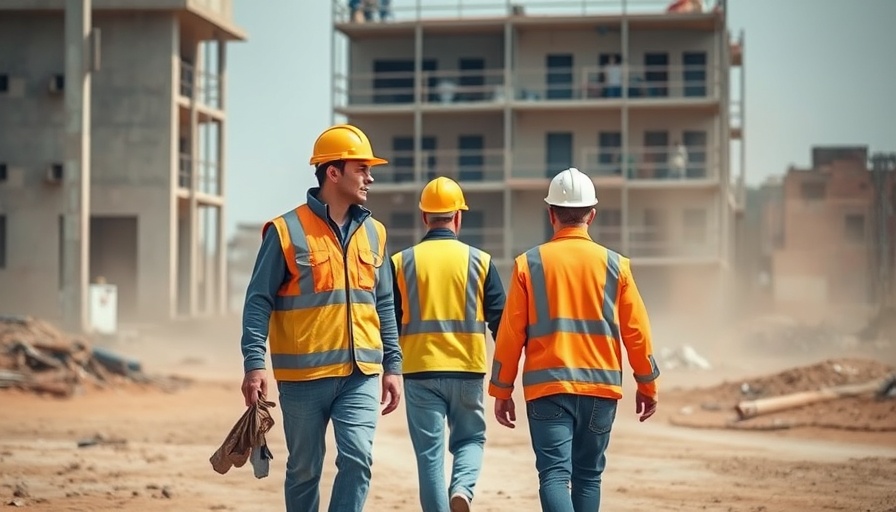
The Need for Practical Immigration Solutions in Construction
The construction industry is a vital aspect of the U.S. economy, employing millions and contributing significantly to national infrastructure. Recently, George Carrillo, the co-founder and CEO of the Hispanic Construction Council, shared insights into the intersection of immigration policy and the Hispanic workforce within this sector. With many Latino Americans participating in the political process, Carrillo emphasizes that the call for a more practical, humane approach to immigration reform is more urgent than ever.
Why Assumptions About Immigrants Need Revisiting
Recent elections revealed a surprising trend: many Hispanic voters supported Donald Trump, who campaigned on a platform featuring mass deportation. However, as Carrillo noted, many Hispanic Americans may not share the direct immigrant experience but still feel the impact of immigration policies on their families and communities. He argues that mass deportation isn't just logistically unfeasible but can also hurt the economy and communities.
Constructing a Future: Proposed Visas Over Deportation
Carrillo proposes a practical solution: bolstering workforce visas to meet the construction and agriculture industries' demands. "The construction industry cannot progress without the talent and labor that immigrants provide, yet we face a shortage of work visas," he explains. Reforming visa policies can foster a stronger workforce while addressing the ongoing concerns about undocumented workers. Improvements in workforce visa structures could provide opportunities for immigrants to contribute positively to the economy.
Understanding the Economic Impact of Immigration
The economic contributions of immigrants in the construction industry cannot be overstated. According to data, immigrants account for a significant portion of labor in construction-related jobs. By streamlining immigration processes, we can elevate labor standards and ensure a stable workforce to tackle ongoing infrastructure projects. The long-term benefits of this approach include enhanced productivity and stability within the industry.
Broader Impacts of Immigration Policies
Beyond construction, immigration policy affects many sectors across the economy. Carrillo emphasizes the need for a holistic view of labor markets that considers the diverse contributions of immigrants. Fair policies can lead to innovation and growth, particularly as the U.S. grapples with workforce shortages in multiple sectors.
The Role of Community Engagement
A critical aspect of immigration reform is community understanding and engagement. Carrillo calls on communities to become active participants in the conversation surrounding immigration policies. By fostering dialogue among various stakeholders, including workers, employers, and policymakers, a more comprehensive and informed policy could emerge.
A Call for Action
As the construction industry evolves, stakeholders must advocate for solutions that reflect the realities of today's labor market. Carrillo suggests that every viewer of the political landscape could contribute by communicating with their representatives about the need for realistic immigration reforms. Every voice matters in shaping a policy that respects human dignity and supports economic growth.
In conclusion, the intersections of immigration policy and the construction industry underscore the importance of finding balanced approaches that serve both workers and the economy. Furthermore, as we consider the future of work in American society, accessible and humane immigration policies remain a critical issue. It’s essential for us to engage and act together to advocate for change that benefits all Americans.
 Add Row
Add Row  Add
Add 




Write A Comment